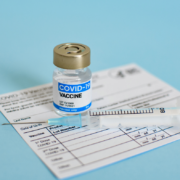By Sally Greenberg, NCL CEO
Pharmacy benefit managers (PBMs) have become the uniquely American actors of behind-the-scenes drama in the healthcare system. They are the classic middleman in that they wield enormous power and get between patients and their prescribed medications. They control how much we pay for the medications and decide whether we can get access to the treatments our doctors prescribe.
Through vertical integration, PBMs have become so intertwined with other players in the healthcare system, including health insurers, chain and mail order pharmacies, group purchasing organizations, and provider groups, it has been difficult for regulators and lawmakers to untangle their oversized – and frankly, anti-consumer – role in the healthcare infrastructure.
This has been verified by outside researchers and investigations time and time again – a bipartisan Senate Finance report noted that PBMs – not drug makers – were driving up the cost of insulin with their demands for higher and higher rebates on an old and very effective drug for diabetes.
And recently, the Federal Trade Commission (FTC) reported that the top three PBMs reaped $7.3 billion in profits from marking up drug prices—a clear indication that these middlemen are not negotiating lower prices for consumers but profiting handsomely at their expense.
As Congress enters the final stretch of negotiating the budget reconciliation bill, we urge our elected officials to include meaningful and broadly supported reforms to pharmacy benefit managers (PBMs).
While PBM reform provisions were included in the House version of the bill, we are disappointed that the Senate version lacks these critical measures. We strongly urge our Senators to incorporate these reforms, which have bipartisan backing in Congress, the support of the White House, and widespread approval from the American public.
The National Consumers League has expressed concern about health policy decisions made in the early months of the Trump administration, including dismantling critical public health programs and undermining public confidence in vaccines. There’s an additional issue, and that is the president’s executive order on prescription drug prices
But in calling for prescription drug prices in the U.S. to be tied to the lowest price charged in other countries, Trump said intriguingly, “We’re going to cut out the middleman and facilitate the direct sale of drugs at the most favored national price directly to the American citizen.” Tying prices to those of other nations is an entirely separate issue that requires additional scrutiny, but questioning the role of the PBMs as middlemen in driving up prices with little value added for consumers is long overdue.
It’s also not unprecedented in today’s marketplace. Three years ago, entrepreneur Mark Cuban started Cost Plus Drugs, bypassing the PBM middlemen and negotiating directly with manufacturers for low list prices. It has been a model of transparency, in which consumers know they are paying the list price plus a 15% markup and a $5 pharmacy fee. By and large, consumers are getting their medicines much more cheaply than through the conventional process.
And we’ve seen large drug manufacturers launch their own direct-to-consumer platforms to help Americans directly and more affordably get certain medicines and gain access to other healthcare services.
This is the kind of “market disruption” that can be beneficial to patients. An immediate advantage is price transparency. In today’s conventional drug prescribing system, few patients can understand what the costs are and who is making money. We have a byzantine system of rebates and discounts that gives PBMs excessive revenue, hiding behind their opaque rebate and other practices, while patients pay higher out-of-pocket costs, and only the PBMs themselves understand how it works – and they like it that way.
In an ideal world, PBMs would return to their original mission – using their buying power to negotiate lower prices for consumers and self-insured employers. The problem is that the three large PBMs that control over 80% of the drug prescribing market have no motivation to compete for lower prices or offer them to consumers.
We support alternatives to PBMs – programs like Cost Plus Drugs that deliver pharmaceuticals to consumers directly and do so affordably and transparently. That might be the best medicine for the problem of middlemen reaping billions of dollars of value from the healthcare system without much gain to anyone but themselves. Call it a new way of looking at PBM reform, which Congress has been pushing for many years. Patients and consumers want transparency, so what is Congress waiting for?

























